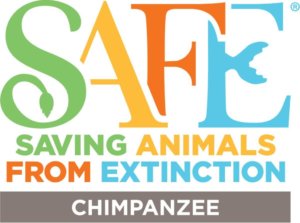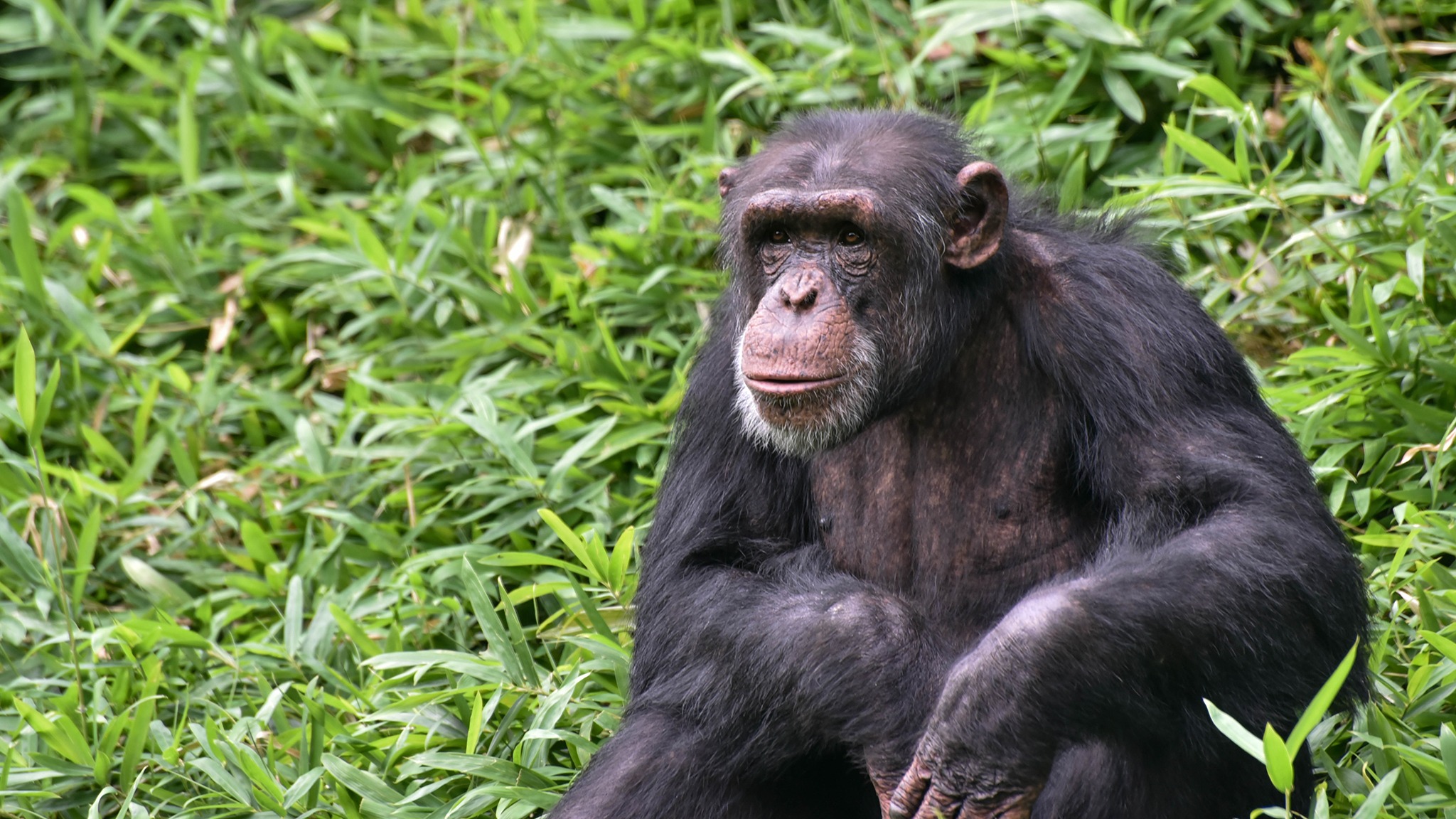Working to Protect Chimpanzees and Their Rainforest Habitats
Here at the Zoo, the chimp troop receives the highest level of care to meet their physical, social, and psychological needs. But for chimpanzees in their native range, threats to survival and well being are many, and include poacher snares, abuse in the pet trade, and loss of their forest habitat through logging and mining.
Protecting any species is complex, and conservation generally requires working on many threats at once. The good news is that there is something for all of us to do that can help to protect chimpanzees and their habitats.
Making Choices for Chimps
Properly recycle your old electronics. Recycling electronics such as cell phones and tablets can decrease the need for mining of minerals used in these products. Less mining means less destruction of chimpanzee forest habitat.
- You can bring your old cell phones and tablets to the Zoo for recycling through Eco-cell! Secure deposit boxes are available in Chimpanzee Forest and at the Zoo’s Main Gate.
Learn more about electronic recycling at the zoo
Shop Forest Stewardship Council (FSC) Products: Let your choice be your voice at the grocery store, office, and beyond! Every FSC-certified product you buy–from lumber to furniture, and from paper to tissue–helps promote responsible forest management. And that protects critical habitats for chimps!
Share with Care: Be thoughtful about the content you share on social media. Images portraying primates in inappropriate situations can have unintended consequences, such as driving the demand for primates as pets. Here are some things to look for before you share that “cute” primate post.
- Share posts of non-human primates in their natural habitats or those designed for their specific needs only–not those in people’s homes.
- Share posts of non-human primates without diapers, clothes, makeup, or leashes.
- Share content from accredited zoos and sanctuaries. Tip: Look for GFAS, AZA, or PASA accreditation.
CONSERVATION PARTNER: Chimpanzee SAFE
The Maryland Zoo supports the protection of chimpanzees in their native range as a member of the Chimpanzee SAFE (“Saving Animals From Extinction”) program. SAFE programs focus the collective expertise within AZA-accredited zoos and aquariums to amplify their conservation impact. Chimp SAFE contributes to projects in three African countries. Each project works to tackle some of the direct threats that chimpanzees face.
The Goualougo Triangle Ape Project works in the Republic of Congo to carry out research to understand chimpanzee ecology, to influence local and national conservation policies, and to train local conservationists.
The Ngogo Chimpanzee Project works in Uganda to remove snares that entrap chimps and other wildlife. They also maintain anti-poaching patrols in Kibale National Park.
The Tonkolili Chimpanzee Project works in Sierra Leone to bring together conservationists, researchers, and the local community in new models of conservation focused on collaboration and human—wildlife coexistence.
